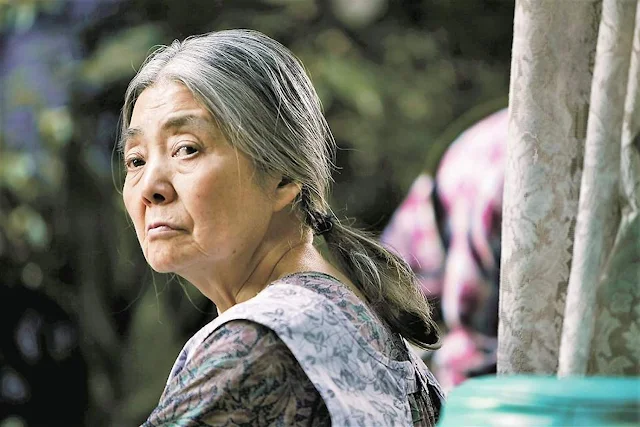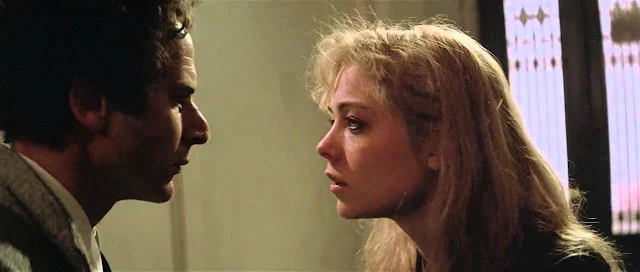A blog formerly known as Bookishness / By Charles Matthews
"Dazzled by so many and such marvelous inventions, the people of Macondo ... became indignant over the living images that the prosperous merchant Bruno Crespi projected in the theater with the lion-head ticket windows, for a character who had died and was buried in one film and for whose misfortune tears had been shed would reappear alive and transformed into an Arab in the next one. The audience, who had paid two cents apiece to share the difficulties of the actors, would not tolerate that outlandish fraud and they broke up the seats. The mayor, at the urging of Bruno Crespi, explained in a proclamation that the cinema was a machine of illusions that did not merit the emotional outbursts of the audience. With that discouraging explanation many ... decided not to return to the movies, considering that they already had too many troubles of their own to weep over the acted-out misfortunes of imaginary beings."--Gabriel García Márquez, One Hundred Years of Solitude
Search This Blog
Saturday, October 26, 2019
Shoplifters (Hirokazu Koreeda, 2018)
Shoplifters (Hirokazu Koreeda, 2018)
Cast: Lily Franky, Sakura Ando, Kirin Kiki, Mayu Matsuoka, Jyo Kairi, Miyu Sasaki. Screenplay: Hirokazu Koreeda. Cinematography: Ryuto Kondo. Production design: Keiko Mitsumatsu. Film editing: Hirokazu Koreeda. Music: Haruomi Hosono.
DNA, Hirokazu Koreeda seems to be saying, is overrated as a way of defining a family. Nothing biochemical seems to link the members of the family that Osamu (Lily Franky) and Nobuyo (Sakura Ando) have put together: waifs and strays, outcast from their biological families. Granted, Osamu and Nobuyo are criminals: He murdered her abusive husband, and they are now living on the pension Hatsue (Kirin Kiki) receives from her late ex-husband, supplementing that not only with whatever they can shoplift from stores but also with Hatsue's own larceny, pretending to the parents of Aki (Mayu Matsuoka) that she has been in touch with the young woman in Australia and receiving money from them to send to her. In fact, Aki ran away from home and now works in a peep-show, writhing erotically, though fully dressed, for patrons behind a one-way window. At some point Osamu and Nobuyo also found young Shota (Jyo Kairi) sleeping in a car and brought him home to help with the shoplifting. As the film begins, it's a cold February night and they come across little Yuri (Miyu Sasaki) shivering outside her house. When they discover bruises and burns on the little girl, signs that her parents have been abusing her, they decide to keep her, training her in their light-fingered ways. Dickens would have loved it, though he would have been forced by convention to restore law and order in a way that allowed everyone to live happily ever after. Law and order win out in Koreeda's film. Happily ever after doesn't. Great performances all around, including magical ones from the children, give Shoplifters the grounding it needs to be more than just a tearjerker.
Friday, October 25, 2019
Fun and Fancy Free (1947)
Fun and Fancy Free (1947)
Cast: Edgar Bergen, Luana Patten; voices of Dinah Shore, Cliff Edwards, Billy Gilbert, Walt Disney, Clarence Nash, Pinto Colvig, Anita Gordon. Screenplay: Homer Brightman, Harry Reeves, Ted Sears, Lance Nolley, Eldon Dedini, Tom Oreb; "Bongo" based on a story by Sinclair Lewis. Production supervisor: Ben Sharpsteen. Film editing: Jack Bachom. Music: Eliot Daniel, Paul J. Smith, Oliver Wallace.
I was 7 years old when Fun and Fancy Free was released, just the right age to be enchanted by it and to beg my mother to buy the album of Bongo, which played in my mind's ear along with the film when I saw it again. Among other things, it set me on a long love of Dinah Shore, a now underrated singer. (If you don't think she was good, check out her holding her own with two of the greatest voices of the 20th century, Joan Sutherland and Ella Fitzgerald, in a performance of "Three Little Maids From School" on YouTube.) But now I can see that the film, which comprises two featurettes, Bongo and Mickey and the Beanstalk, is hardly prime Disney. Bongo, though charmingly narrated by Shore, is a sort of reworking of Dumbo (1941), about the liberation of a circus animal, and it gets a little dull when Bongo finds love in the form of the flirtatious Lulubelle, with the usual kitschy Valentine motifs Disney animators were so fond of. Mickey and the Beanstalk is better, with some witty animation when the beanstalk grows through the night, lifting the sleeping Mickey, Donald, and Goofy high into the air, dumping them from their beds but swiftly rescuing them. There's also some funny stuff when Goofy finds himself atop an enormous blob of gelatin on the giant's dining table, and Billy Gilbert does some great voice work as Willie the Giant. The section is framed by a live action sequence featuring a party thrown by Edgar Bergen, Charlie McCarthy, and Mortimer Snerd for the very young Luana Patten, who had just made her debut in Song of the South (1946) and would work for Disney till the onset of puberty. Jiminy Cricket serves as a kind of bridge between the live action and the cartoon, but only Charlie McCarthy's wisecracks add much to a fairly unnecessary frame story. Both of the featured stories had originally been planned for feature-length films, but had been shelved during the war and suffered cutbacks during the uncertainty about how the studio would fare in the postwar years.
Thursday, October 24, 2019
Bad Timing (Nicolas Roeg, 1980)
Bad Timing (Nicolas Roeg, 1980)
Cast: Art Garfunkel, Theresa Russell, Harvey Keitel, Denholm Elliott, Daniel Massey, Dana Gillespie, William Hootkins, Eugene Lipinski, George Roubicek, Stefan Gryff. Screenplay: Yale Udoff. Cinematography: Anthony B. Richmond. Art direction: David Brockhurst. Film editing: Tony Lawson. Music: Richard Hartley.
The jigsaw-puzzle narrative of Bad Timing makes for a film whose parts are more interesting than its whole. It never settles down to be what it is by nature, a psychosexual thriller, but loses itself in a lot of loose ends and red herrings. Which is not to say that it isn't a more interesting film than a lot from its era: I'd rather watch it again than, say, the year's Oscar best picture, Robert Redford's Ordinary People. The people in Bad Timing are anything but ordinary. Art Garfunkel, hardly a conventional leading man, plays Alex Linden, a "research psychoanalyst" who gets involved with a seductive young woman, Milena Flaherty, played with her usual sensuality by Theresa Russell. Linden finds out that Milena is married to, but separated from, an older man who lives in Czechoslovakia, Stefan Vognic (Denholm Elliott) -- whom Linden, whose sideline involves consulting work for American forces stationed in Vienna, is asked to investigate. You can sense at this point that the plot is going to wander off into eddies of intrigue that we can never quite bring into focus. But the precipitating event, as far as any central plot is concerned, is Milena's attempt at suicide, which brings an Austrian police detective named Netusil (the oddly cast but also oddly effective Harvey Keitel) into the picture. When Linden, who reported the suicide attempt, goes taciturn and evasive under Netusil's attempts to interview him, the detective grows more determined to find out about the relationship between Linden and Milena, which as far as the film is concerned only spurs more and more flashbacks. The evident determination of director Nicolas Roeg and screenwriter Yale Udoff to avoid anything like conventional thriller clichés while at the same time using them as a kind of cinematic subtext produces a film that's been either damned as a maddening muddle or praised as a provocative exploration of sexual obsession. To my mind it's a fascinating botch at best.
Wednesday, October 23, 2019
Can You Ever Forgive Me? (Marielle Heller, 2018)
Can You Ever Forgive Me? (Marielle Heller, 2018)
Cast: Melissa McCarthy, Richard E. Grant, Dolly Wells, Ben Falcone, Gregory Korostishevsky, Jane Curtin, Stephen Spinella, Christian Navarro, Anna Deavere Smith. Screenplay: Nicole Holofcener, Jeff Whitty. Cinematography: Brandon Trost. Production design: Stephen H. Carter. Film editing: Anne McCabe. Music: Nate Heller.
Malcontents make for good movie material -- just look at the success of Todd Phillips's Joker, a current box office hit despite decidedly mixed reviews. Not that Lee Israel, the subject of Can You Ever Forgive Me? has much in common with the psychotic character played (some would say overplayed) by Joaquin Phoenix. Lee is just a little larcenous, not murderous. But she has a similarly sour view of humankind, which she feels has rejected her talents as a writer. She looks to get even with the literary world -- and to shore up her dwindling income -- by forging letters from the likes of Fanny Brice, Noël Coward, and Dorothy Parker. And she has just enough talent to bring it off. Melissa McCarthy is superb in the role, which earned her an Oscar nomination; she knows when to soften Lee's hard edges, so that we don't lose complete sympathy for her. And it helps that she has the fine character actor Richard E. Grant, who also got an Oscar nomination, to play off of: Grant's seedy gay layabout, Jack Hock, is just a few moral levels below Lee, making him the perfect foil for her character. Can You Ever Forgive Me? is only Marielle Heller's second film as a director, and it's nicely paced, except for a few moments when it feels as if something has been left on the cutting-room floor. The introduction of Anna Deavere Smith as Elaine, Lee's friend and apparently her former lover, seems to come out of nowhere and linger there awkwardly. But Heller also handles the sexual tension that develops between Lee and Anna (Dolly Wells), the bookseller who buys Lee's first forgery, with subtlety: We sense Anna's quiet disappointment when Lee walks away from her shy attempt to make a move. Can You Forgive Me? feels a little ragged in its resolution, as if the film has run out of story to tell once Lee has been caught, and it ends with the usual title summaries of what happened to the real-life Lee and Jack, a crutch that biographical films too often rely on. But it's full of witty moments and performers who make the most of them.
Subscribe to:
Comments (Atom)































































